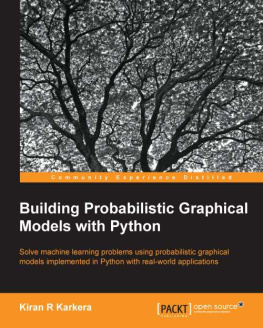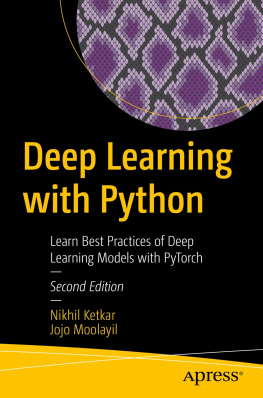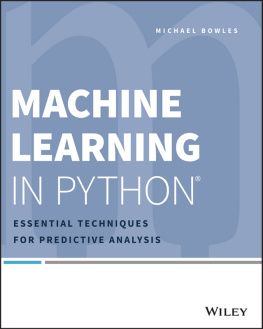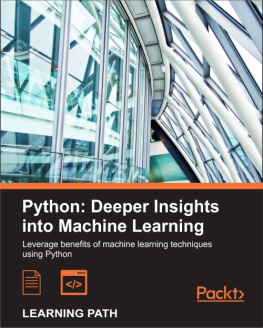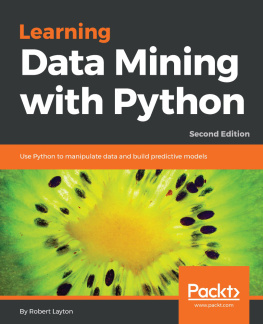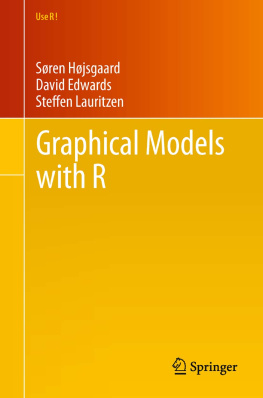About the Author
Kiran R Karkera is a telecom engineer with a keen interest in machine learning. He has been programming professionally in Python, Java, and Clojure for more than 10 years. In his free time, he can be found attempting machine learning competitions at Kaggle and playing the flute.
I would like to thank the maintainers of Libpgm and OpenGM libraries, Charles Cabot and Thorsten Beier, for their help with the code reviews.
About the Reviewers
Mohit Goenka graduated from the University of Southern California (USC) with a Master's degree in Computer Science. His thesis focused on game theory and human behavior concepts as applied in real-world security games. He also received an award for academic excellence from the Office of International Services at the University of Southern California. He has showcased his presence in various realms of computers including artificial intelligence, machine learning, path planning, multiagent systems, neural networks, computer vision, computer networks, and operating systems.
During his tenure as a student, Mohit won multiple competitions cracking codes and presented his work on Detection of Untouched UFOs to a wide range of audience. Not only is he a software developer by profession, but coding is also his hobby. He spends most of his free time learning about new technology and grooming his skills.
What adds a feather to Mohit's cap is his poetic skills. Some of his works are part of the University of Southern California libraries archived under the cover of the Lewis Carroll Collection. In addition to this, he has made significant contributions by volunteering to serve the community.
Shangpu Jiang is doing his PhD in Computer Science at the University of Oregon. He is interested in machine learning and data mining and has been working in this area for more than six years. He received his Bachelor's and Master's degrees from China.
Jing (Dave) Tian is now a graduate researcher and is doing his PhD in Computer Science at the University of Oregon. He is a member of the OSIRIS lab. His research direction involves system security, embedded system security, trusted computing, and static analysis for security and virtualization. He is interested in Linux kernel hacking and compilers. He also spent a year on AI and machine learning direction and taught the classes Intro to Problem Solving using Python and Operating Systems in the Computer Science department. Before that, he worked as a software developer in the Linux Control Platform (LCP) group at the Alcatel-Lucent (former Lucent Technologies) R&D department for around four years. He got his Bachelor's and Master's degrees from EE in China.
Thanks to the author of this book who has done a good job for both Python and PGM; thanks to the editors of this book, who have made this book perfect and given me the opportunity to review such a nice book.
Xiao Xiao is a PhD student studying Computer Science at the University of Oregon. Her research interests lie in machine learning, especially probabilistic graphical models. Her previous project was to compare two inference algorithms' performance on a graphical model (relational dependency network).
www.PacktPub.com
Support files, eBooks, discount offers and more
You might want to visit www.PacktPub.com for support files and downloads related to your book.
Did you know that Packt offers eBook versions of every book published, with PDF and ePub files available? You can upgrade to the eBook version at > for more details.
At www.PacktPub.com, you can also read a collection of free technical articles, sign up for a range of free newsletters and receive exclusive discounts and offers on Packt books and eBooks.
http://PacktLib.PacktPub.com
Do you need instant solutions to your IT questions? PacktLib is Packt's online digital book library. Here, you can access, read and search across Packt's entire library of books.
Why Subscribe?
- Fully searchable across every book published by Packt
- Copy and paste, print and bookmark content
- On demand and accessible via web browser
Free Access for Packt account holders
If you have an account with Packt at www.PacktPub.com, you can use this to access PacktLib today and view nine entirely free books. Simply use your login credentials for immediate access.
Preface
In this book, we start with an exploratory tour of the basics of graphical models, their types, why they are used, and what kind of problems they solve. We then explore subproblems in the context of graphical models, such as their representation, building them, learning their structure and parameters, and using them to answer our inference queries.
This book attempts to give just enough information on the theory, and then use code samples to peep under the hood to understand how some of the algorithms are implemented. The code sample also provides a handy template to build graphical models and answer our probability queries. Of the many kinds of graphical models described in the literature, this book primarily focuses on discrete Bayesian networks, with occasional examples from Markov networks.

